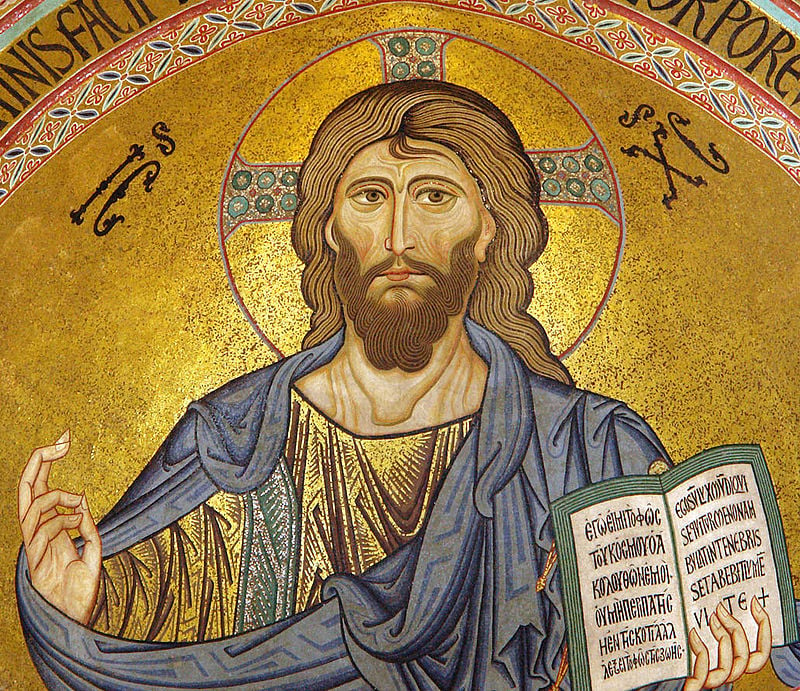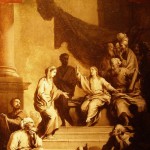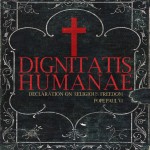Yes, I’m late to the party. The New Atheist thing seems to be moribund at the moment, although the half-corpse sometimes twitches. But that may paradoxically make this book more valuable.
I think I will not be alone if I state that the debates around New Atheism are extremely tiresome, because the New Atheists are not so much giving the wrong answers or even asking the wrong questions but not even understanding the questions. I bought Atheist Delusions basically on a lark (oh, Amazon and your one-click Kindle shopping!), mostly out of interest for David Bentley Hart’s famously felicitous prose, expecting a philosophical polemic going over the many arguments that all intellectual Christians know by heart, and expecting that I would skim it, joyously tweet out the most damaging passages, and then forget about it.
Instead I found something very different. Atheist Delusions is a misleading title: this book is really, as the author says in his introduction, a historical essay, only tangentially related to these delusions. It is not, or only as the argument demands, concerned with philosophy, metaphysics or theology. The main argument of the book is simple, and true: Christianity was the only true “revolution” in history, in the sense that it radically transformed the entire outlook of the culture in which it emerged, so much so that it is nearly impossible for us on the other side of the chasm to grasp it.
Because of his enormous erudition, keen intellect, and gift with wielding the quill, Hart is especially suited to the task of making this argument. He has mastery of the historical sources, of the worldview of both the Pagan world and the Christian world that replaced it, and of all the issues involved.
Christianity, Hart argues, was the first movement to even intuit, let alone take to heart, what he calls a “total humanism”, meaning the conviction that every single human being has infinite value. This is an idea that, at least rhetorically, is today taken for granted by almost everyone in the post-Christian world, but was absolutely new–and scandalous–in the Pagan world.
While the Christian world, Hart very readily admits, had its share of atrocities, it remained forever haunted by this Christian total humanism, sometimes with dramatic consequences. For example, Hart goes over the fact of the Christian care of slaves and their progressive (though, sadly, much too slow) dismantling of the institution, the fact that the Christians were the first to organize care for widows (who, typically, in the ancient world, had no means to care for themselves), orphans, and the poor generally; that the hospital is a Christian invention; that Christians very often cared for victims of plagues at the risk of their own lives, and so on.
The book is full of gems. Hart’s biographical sketch of Julian the Apostate alone is worth the price of admission. Hart portrays Julian as essentially better than the Christian emperors who preceded and followed him: unlike them, whose allegiance was at best tinted by political calculation, a sincere religious believer; often a wise and less violent ruler (and milder in his oppression of Christians than many Christian Emperors were against Pagans); “capable of self-mockery”, not an attribute one often associates with late-Roman Emperors. Most importantly, to Hart, Julian’s attempt to reinstate paganism as the religion of the Empire is proof of the total victory of the Christian revolution. It’s not just that Julian’s earnest complains that Christians are winning converts because of their virtue or care for the poor is very strong historical evidence that this narrative is not later Christian propaganda. It is that the paganism Julian envisioned was a post-Christian one: an organized church; a dogmatic stress on brotherly love; priests taking vows of poverty; temples seeing care for the poor as one of their principal missions (in his letters, Julian repeatedly laments that the Christians not only take care of their own poor but all poor, and insists that to compete (as we would put it today) Pagans must do the same)–all concepts utterly foreign to the traditional Paganism that Christianity was replacing and that, already, no one could imagine a plausible religion without.
Another figure, Theodosius, stands as an example of the paradoxical role of Christianity in shaping (and being shaped by) cultural institutions. Theodosius established Nicene Christianity as the state religion of the Roman Empire and vigorously persecuted its opponents, setting in motion Christianity’s long and lamentable history of closeness to, and corruption by, political power. At the same time, after a massacre (of Christians and Pagans alike) had occurred under Theodosius’s orders, Ambrose, bishop of Milan, excommunicated Theodosius, refused him entry to the cathedral, and would only readmit him as a penitent–and Theodosius, Roman Emperor, inconceivably from the vantage point of the previous centuries, complied. So even as proximity to power introduced a new and disastrous corruption to Christianity, Christianity, for the first time in all of human history, established that political rulers were subject to a higher divine and moral law and established a precedent of momentous consequences. It’s really worth stressing how utterly inconceivable this would have been in the Pagan, particularly Roman, world, where rulers were seen not as subjects of the divine but as their incarnation and their will manifested.
The most striking passage of the book is the one where Hart, convincingly, argues that to the people of the world of the early Christians, the story of the crucifixion of Jesus Christ would have seemed right. In the world of the day, Jesus of Nazareth, as a carpenter’s son from a backwater, was not only a legal but a moral non-entity, while both the Sanhedrin and the Roman Governor were imbued with divine authority; and therefore, such a lowlife disturbing the peace, and the proper authorities restoring the peace by destroying the lowlife in an appropriately shameful and humiliating way, would have seemed to Pagans not as sad, or even a lamentable necessity, but as positively right. This shows the positively dynamite-like power of the Gospel, where God’s triumphant reversal of the condemnation becomes a condemnation of the entire order of the society. But closer to Hart’s argument, given that even to the most faithless post-Christian it is impossible not to see the execution of Jesus of Nazareth as some kind of injustice, this demonstrates in a striking way both the moral decrepitude of the Pagan world and the extent and success of the Christian revolution that took it over.
Beyond the history, what makes the strength of the book is that, because Hart understands both the historical events and the ideas and has a keen mind, he is able to describe the history “just right”, that is to say, neither underplaying nor overplaying the role of ideas. For ideas do have consequences, but history is messy, and Christianity was more often found difficult and left untried than tried and found wanting. And so at the same time Christianity effected a total revolution on the mind in the Pagan world, but that revolution’s practical success was only partial and ephemeral.
Hart is actually, in a way, modest in his claims. Christendom was only ever haunted by Christianity, and never represented any fulfillment of it. While modern science could only have been born out of a culture that viewed the Universe as rationally ordered by an utterly transcendent God, Hart argues, he also explicitly rejects a simplistic narrative by which Christianity simply gave birth to modern science. Hart has always stood out among many Eastern Orthodox writers for his scrupulous fairness to Augustine, Aquinas, and Medieval and Counter-Reformation Catholicism (as I quipped on Twitter, this book was the first writing I read by an Eastern Orthodox that has nice things to say about Jesuits).
There are some things I could say to criticize the book, notably its reduction of Modernity to a choice-based view of freedom and a nihilistic embrace of the will as moral guide; while that is certainly–who could deny it?–part of it, I do think there is more. But Hart really did not have either the time or inclination for a thorough critique of Modernity, and his intent there is clearly more to shock Modern readers in realizing that the abandonment of Christian humanism is far from necessarily leading to a mild universalist humanism. I also wish he had more extensively argued, or at least footnoted his, to my mind, idiosyncratic reading of John 1:1, which asserts that it avails itself more easily to an Arian reading than a Nicene.
Finally, the book’s last great strength–and I mean this in no way as a backhanded compliment–is that it is short. It is, after all, a historical essay, not a book of scholarship, historical or philosophical, and part of the virtue of great essays is that they are never longer than they have to be. One reason why you should read this book is because it can be read in a few sittings, as I did.
“Cefalu Christus Pantokrator cropped” by Photo by Andreas Wahra, edited by Entheta – own photography (Andreas Wahra) Image:Cefalu Christus Pantokrator.jpg. Licensed under CC BY-SA 3.0 via Wikimedia Commons.













